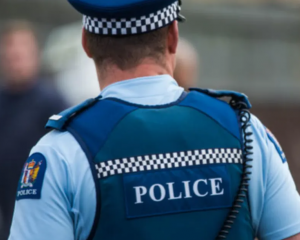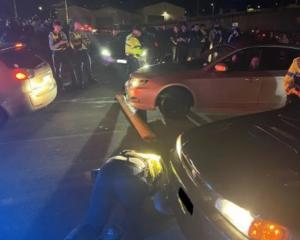
Speaking at the Auckland Central Police Station, Goldsmith said under the new law to crack down on gangs, police would be able to issue dispersal notices which would require gang members to immediately leave the area and not associate with one another for seven days.
Courts will be able to issue non-consorting orders, which will stop specified gang offenders from associating or communicating with one another for up to three years.
“The law will also be changed to give greater weight to gang membership as an aggravating factor at sentencing, enabling courts to impose more severe punishments,” Goldsmith said.
Under the legislation, wearing a gang patch in public would come with a penalty of a fine of up to $5000 or up to six months in prison.
He said over the last five years gangs had recruited more than 3000 members, a 51 percent increase. At the same time, there had been a significant escalation in gang-related violence, public intimidation and shootings, with violent crime up 33 percent.
“We need to take action and reduce gangs’ ability to engage in criminal behaviour and prevent them from further endangering and intimidating Kiwis.
“That is why, as part of National and Act’s coalition agreement, the government will introduce legislation to ban all gang insignia in public places, and create greater powers to stop criminal gangs from gathering in groups and communicating.”
Mitchell said New Zealanders deserved to feel safe in their homes, communities and public places.
“For too long gangs have been allowed to behave as if they are above the law. There is no tolerance for this behaviour and these new laws will support Police to take action against it.”













